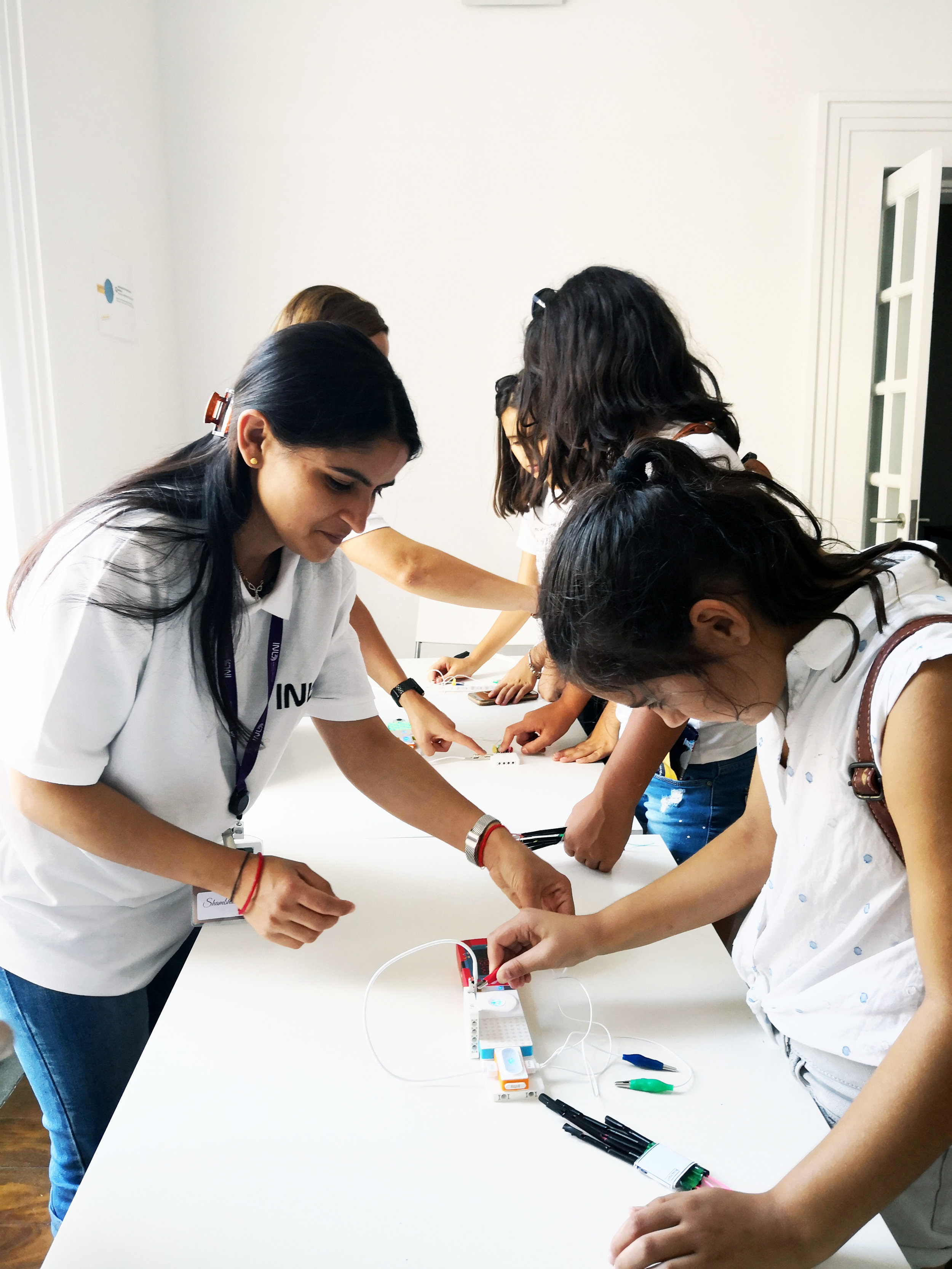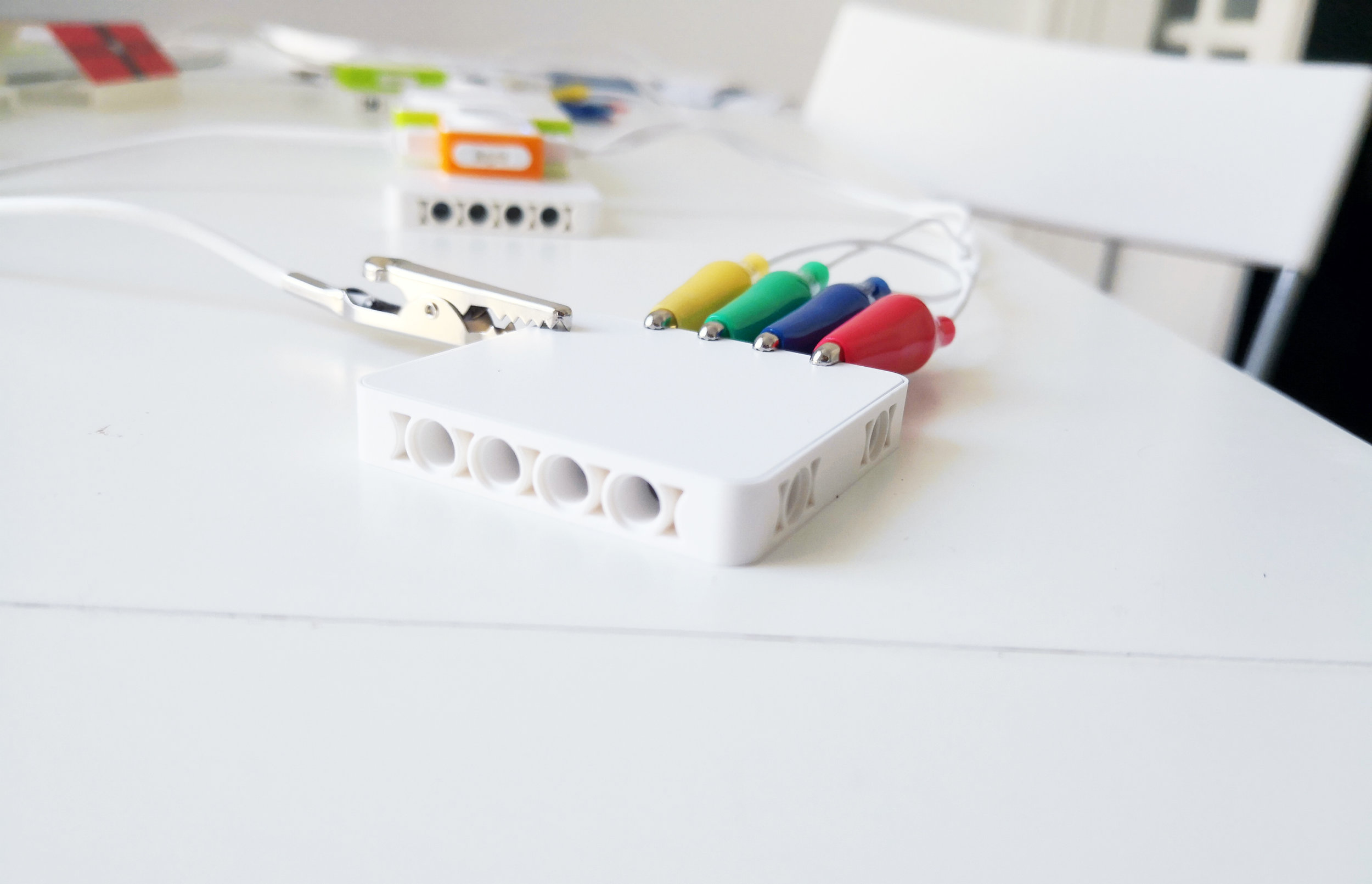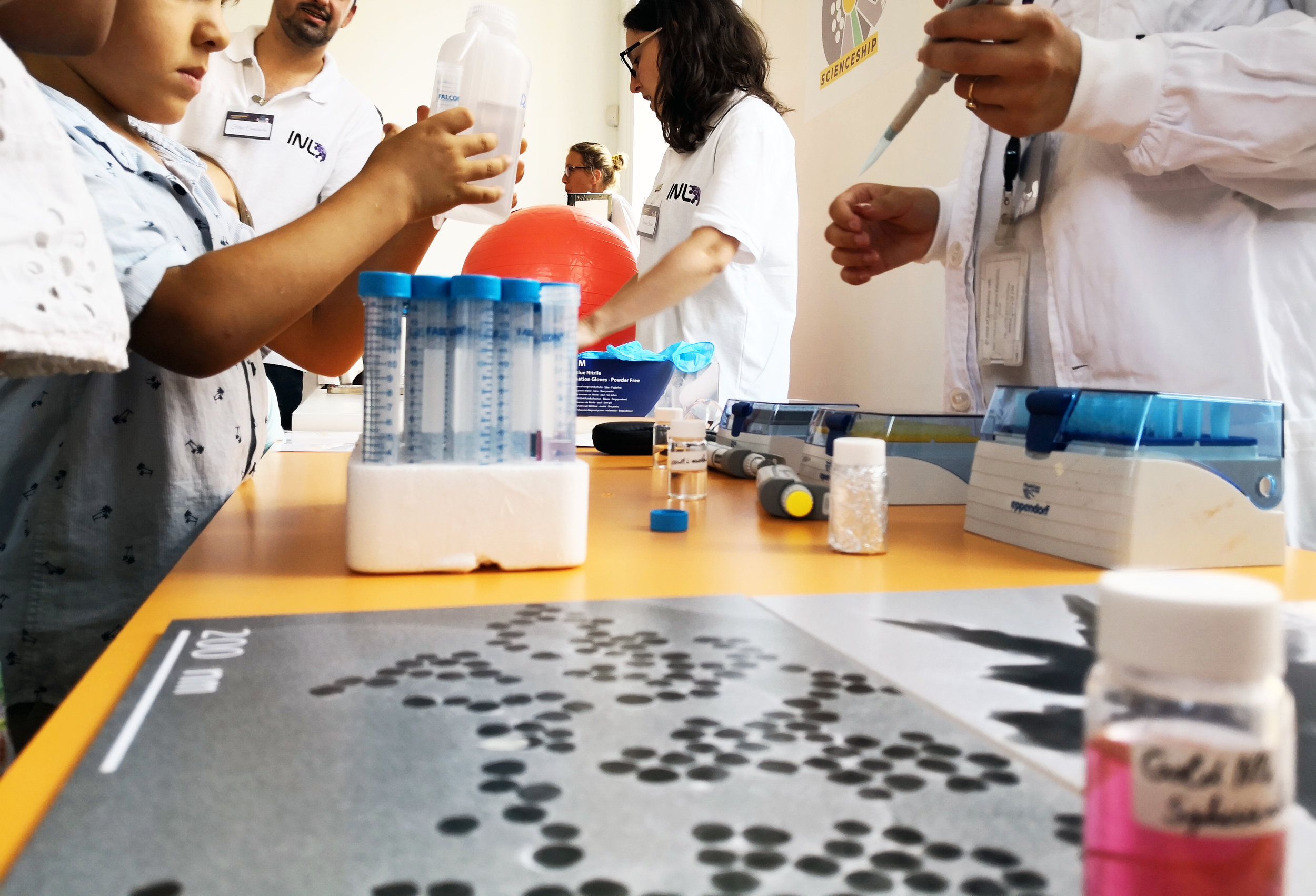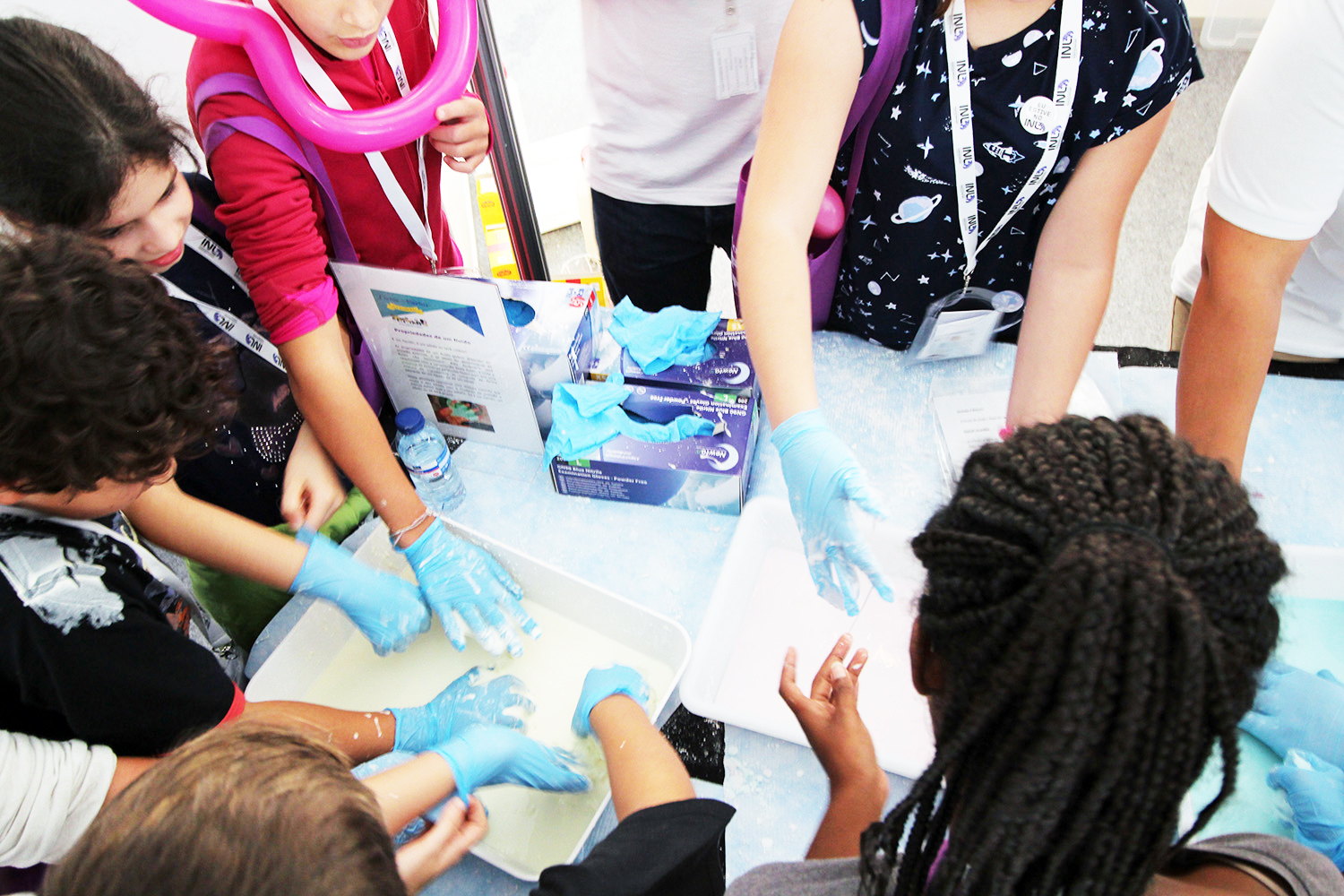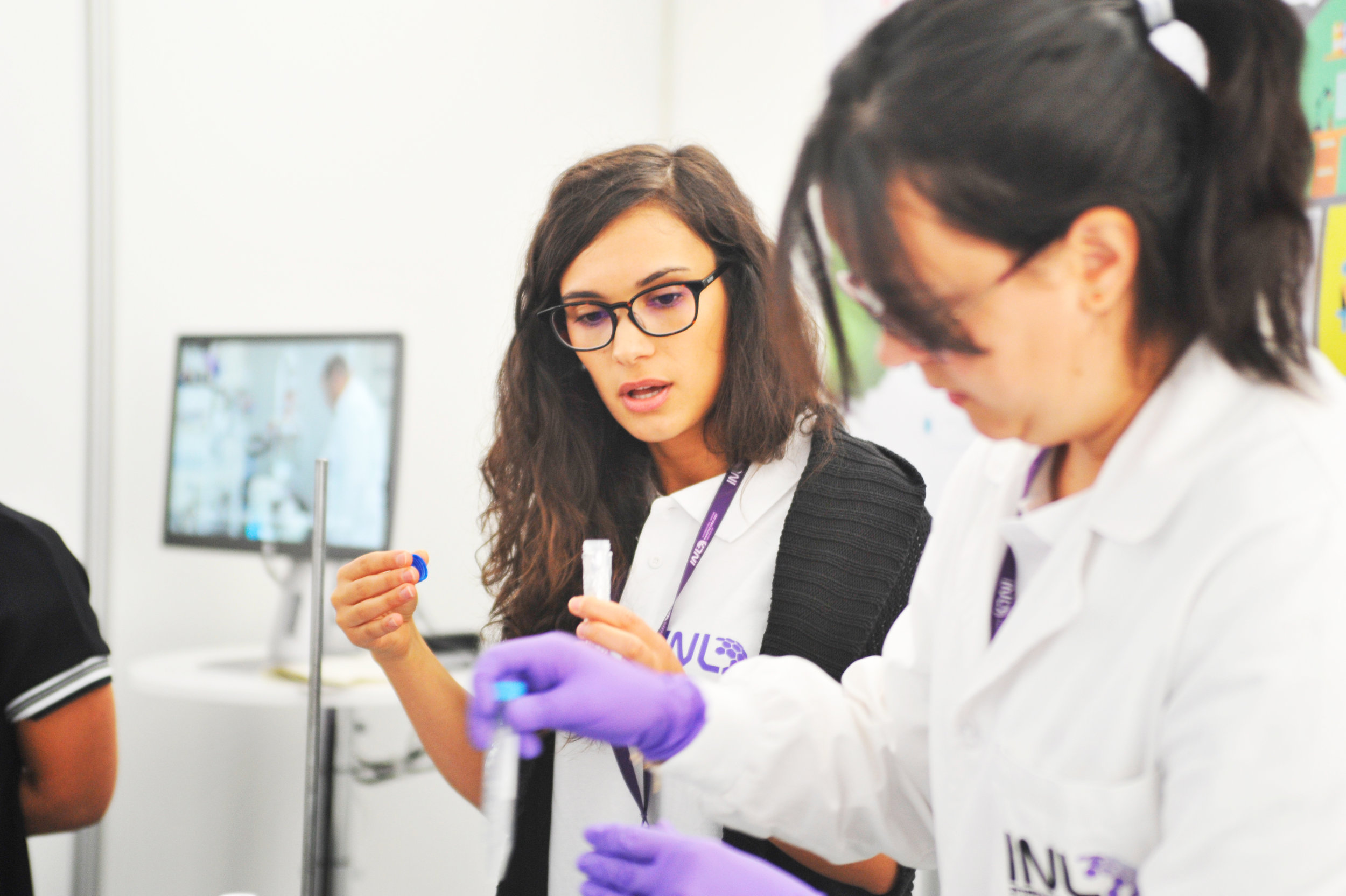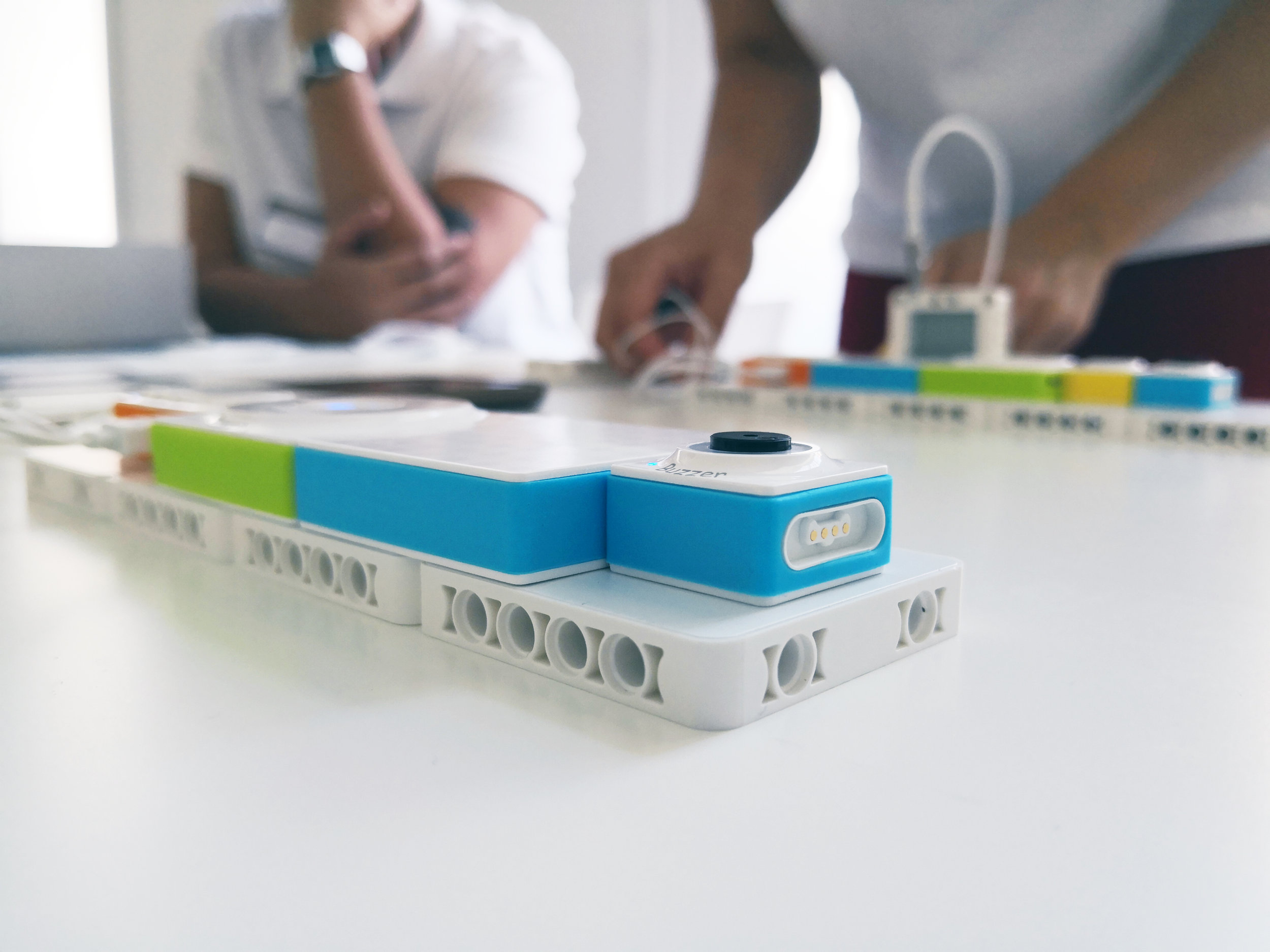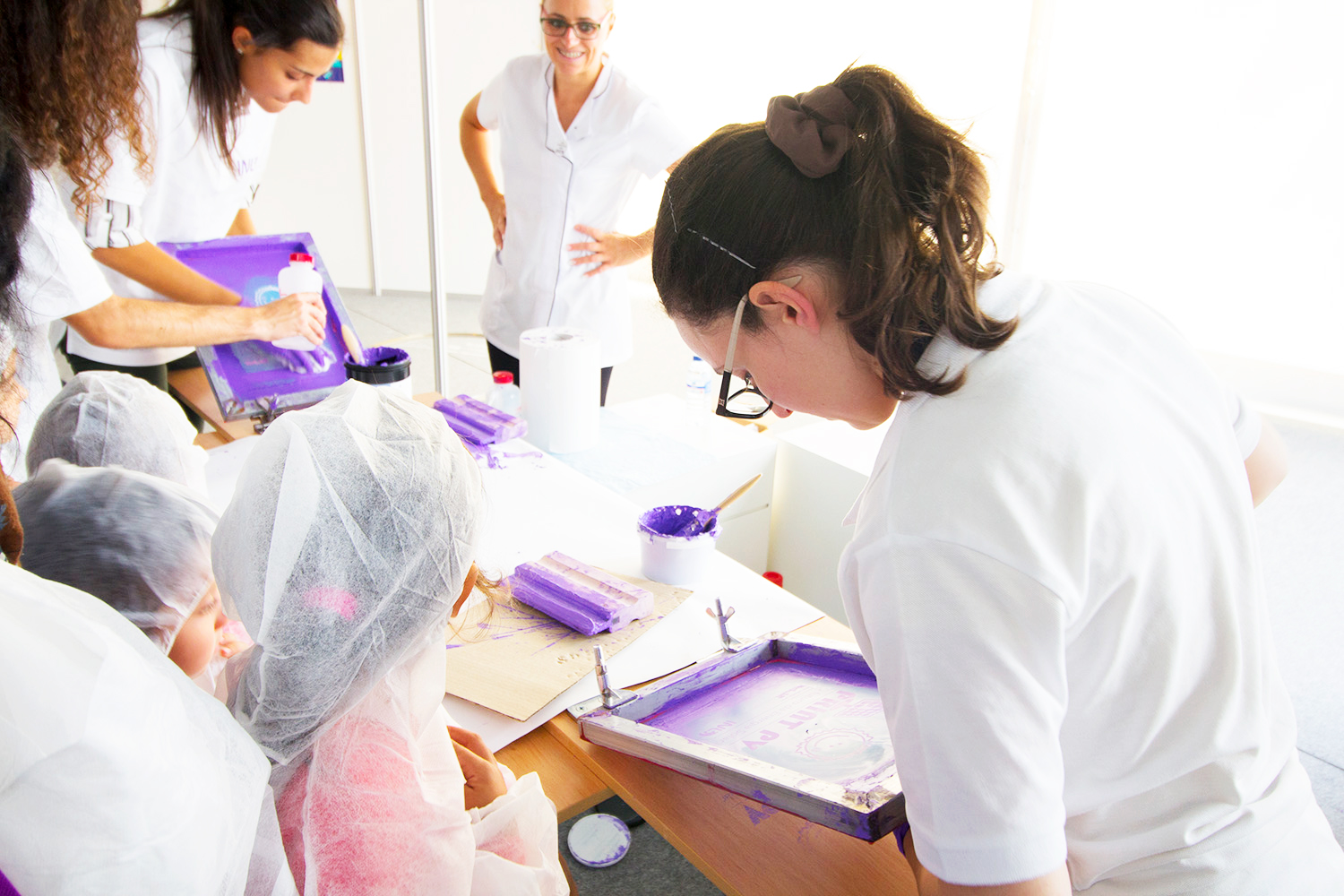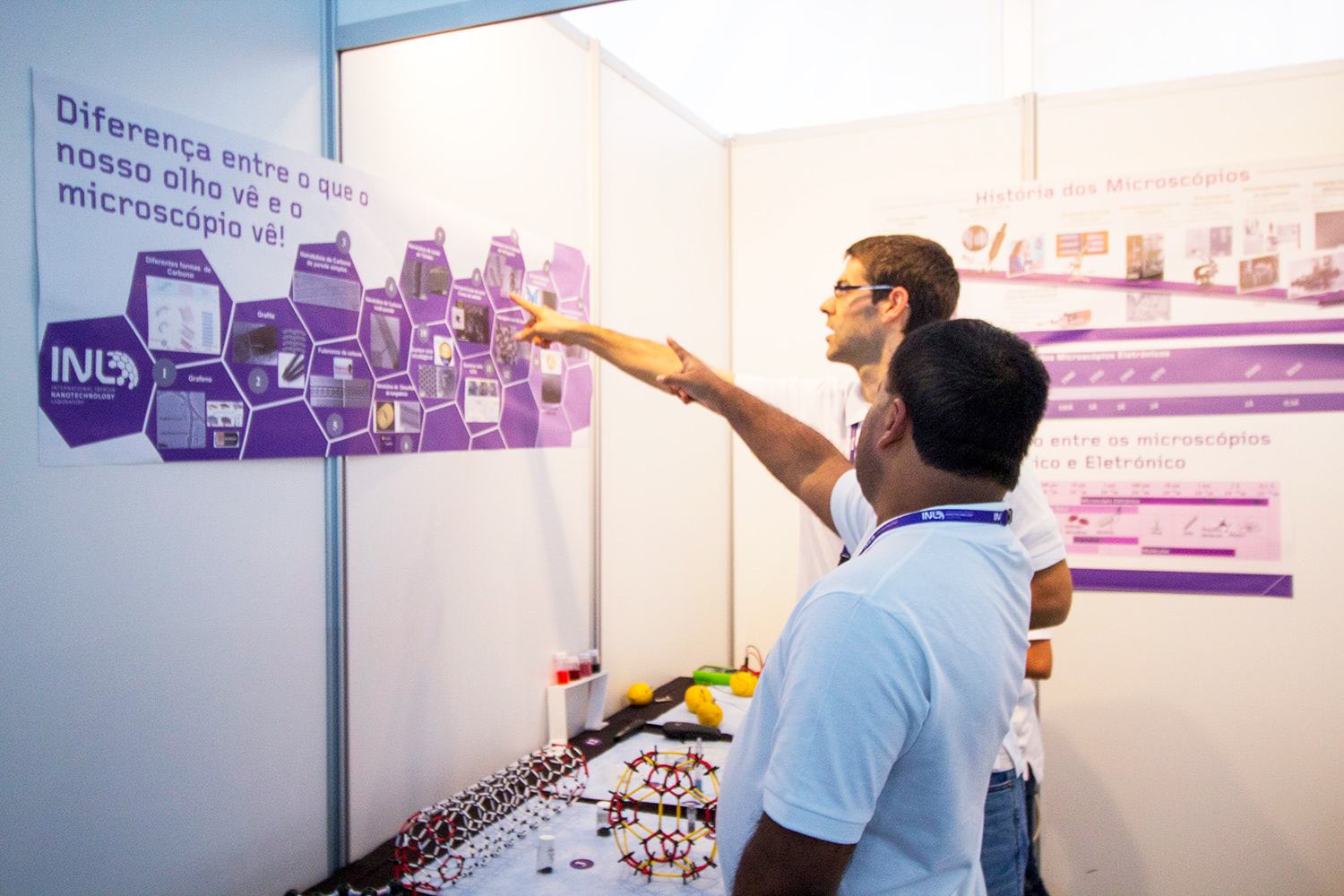BRINGING THE REASEARCHERS CLOSER TO THE PUBLIC
The European Researchers’ Night (ERN) is an initiative promoted by the European Commission since 2005, with the aim of celebrating science and bringing it closer to citizens.
Framed in the Marie Skłodowska-Curie Actions, the European Researchers’ Night takes place simultaneously in more than 30 countries and 300 cities throughout Europe.
We look forward to meeting you!
24.09.2021
#ERN2021 #NEI2021
Highlighting the impact of research on our daily lives
European Researchers’ Nights are public events dedicated to bringing researchers closer to the public by showcasing the diversity of research. The aim to motivate young people to embark on research careers.
AN EVENT DEDICATED TO
‘Science for Climate’
This year, ‘Science for Climate’ is the motto that frames an event committed to raising awareness about the role of science in achieving the goals of the European Green Deal. It aims to identify major societal concerns about climate change, understand how to achieve sustainable growth, and explore the present and future solutions to tackle these challenges.
European Researchers’ Night will take place at Altice Fórum Braga and also online. Join us!
WHY YOU SHOULD ATTEND?
LEARN
EXPERIMENT
ENGAGE
HAVE FUN
During the European Researchers’ Night, you have the opportunity to learn and experience science in a unique way. Researchers bring life different scientific experiments to the streets. Visitors pass through live laboratories and experience scientific work and learn about hot topics in depth. Everyone with a passion for science – children, adults, and seniors – is welcome.
Meet our researchers and learn how to love science, because science is part of your life and part of you!
15h30 Live from the Lab, with Pedro Anacleto
Directly from the INL laboratory, the researcher Pedro Anacleto will show how solar energy positively affects our days, our lives and our research. Pedro Anacleto is a Research Engineer at the Laboratory of Nanostructured Solar Cells (LaNaSC), where he focuses his research on the design and the micro and nanofabrication of photovoltaic devices, particularly to applications in thin-film solar cells, micro-concentrators, and solar window devices.
14h00 | Live from the Lab, with Raquel Queirós
Directly from the INL laboratory, Raquel Queirós will show how new systems for water contaminants capture are being explored by means of novel tailored nanomaterials. On the other hand, biosensing devices are developed and/or tailored to detect and quantify the presence of water contaminants such as biotoxins, pathogens and invasive species. Raquel Queirós is a Staff Researcher in the Water Quality Research Group at the International Iberian Nanotechnology Laboratory. Her main research interests include label-free detection methods for life science applications, new biomimetic materials as molecular recognition probes and engineering solutions for water quality monitoring.
15h30 | Live from the Lab, with Ana Isabel Bourbon e Ana Azevedo
Let’s meet live in the INL laboratory! The researcher Ana Isabel Bourbon will explain why the increase in world population has implications for the food supply and the conventional methods currently used and how new technologies can help address this need, and create new efficient solutions that can be applied worldwide.
Ana Bourbon is a Staff Researcher of the Life Sciences Department-Food Processing and Nutrition Group, and she works at INL on CVMAR project with the purpose to encapsulate bioactive compounds to improve the shelf life of food products.
17h00 | @ Cientista Regressa à Escola, Live with Joana Bordalo e Matilde Gonçalves
The educational programme @ Cientista Regressa à Escola is part of the international network of scientists - Native Scientist is an inspiring project designed to promote scientific literacy and equal educational opportunities in Portugal. Its mission is to strengthen the relationship between Science and Society, promoting the return of Portuguese scientists to the elementary schools they attended to conduct dynamic and didactic science workshops, inspiring the next generation through the Portuguese language and their example.
Solar Energy with Pedro Anacleto
Directly from the INL laboratory, the researcher Pedro Anacleto will show how solar energy positively affects our days, our lives and our research. Pedro Anacleto is a Research Engineer at the Laboratory of Nanostructured Solar Cells (LaNaSC), where he focuses his research on the design and the micro and nanofabrication of photovoltaic devices, particularly to applications in thin-film solar cells, micro-concentrators, and solar window devices.
Physics at the Microscale, with Miguel Xavier
Miguel Xavier will show how the physics of fluids at the microscale adopt unexpected and counter-intuitive phenomena that will blow your mind. Miguel Xavier obtained his MSc in Biomedical Engineering from the University of Porto in 2012 and his PhD from Southampton in 2018. He is currently a Marie Curie, Individual Fellow at the International Iberian Nanotechnology Laboratory. Miguel’s research interests focus on the application of microfluidics to life sciences, including, for example, label-free cell sorting or continuous flow organ-on-chip models.
Altice Fórum Braga | All ages
Life Cycle Assessment of Nanomaterials, with Carla Lopes
Manufactured nanomaterials have specific physicochemical properties that give them unique mechanical, optical, electrical and magnetic characteristics advantageous for industrial and biomedical applications. However, the exponential development of nanotechnologies contrasts with the still insufficient risk assessment for human health and the environment, leading to public health concerns.
Carla Lopes is a Researcher at the Nanosafety Research Group and her work is focused on computational life cycle analysis to assess the environmental impact of nanomaterials.
Altice Fórum Braga | All ages
Improving solar panels efficiency with Nanostructures, with Patricia Sousa and Pablo Valentim
More and more, we talk about the importance of energy efficiency and how it can help the environment and our economies. Changing behaviour and implementing energy efficiency measures allows consumers to reduce energy consumption and contribute to a healthier environment.
Patrícia Sousa is a Research Engineer of the Integrated Micro and Nanotechnologies Group at INL. Her research activities focus on microfluidics and micro-and nanofabrication, in particular nanoimprint lithography and soft-lithography.
Pablo Valentim joined the group of Integrated Micro and Nanotechnologies at INL where he will explore the techniques of plasma-enhanced chemical vapour deposition to grow thin layers of semiconductor materials onto polymeric lenses and use reflectivity experiments to characterize the device’s properties.
Altice Fórum Braga | All ages
Microstructures & Coatings Biofouling, with Marília Santos and Juliana Sousa
Marine Biofouling' or the unwanted growth of marine organisms such as micro-organisms, and marine algae on submerged surfaces, is a global problem for marine industries, with negative environmental impacts. The main strategy to combat marine fouling is to use paints that contain biocides, but environmental concerns and legislation are leading science and technology to non-biocidal solutions based solely on the physicochemical and material properties of coatings. Advances in nanotechnology and polymer science, and the development of new surface designs that are 'bio-inspired' by nature, are expected to have a significant impact on the development of a new generation of environmentally friendly marine coatings.
Marília Santos is a staff researcher in the Water Quality Research Group, Life Sciences Department, at INL. Her research is focused on the development of innovative surfaces for the control of microorganisms’ adhesion and biosensors.
Juliana Sousa joined INL in 2015 and is currently working on the development of adsorption technologies for the recovery of metal ions from industrial wastewater.
Altice Fórum Braga | All ages
16h30 Workshop 1 – Discovering the Light, with Juan Pomar
In this workshop “Discovering the light” we will try to answer questions like what is light? What are its properties? Or which applications based on lightweight technologies are used in our daily lives? Finally, we developed several experiments with the aim of bringing people closer to some properties of light in nature such as fluorescence, refraction, and scattering... and some light-based applications. Join us!
Dr Garcia-Pomar is, currently, Marie Curie Fellow at the International Iberian Nanotechnology Laboratory. He holds a PhD from the Materials Science Institute of Madrid (CSIC) and during his career, he carried out several postdoctoral fellowships at Fraunhofer Institute in Germany or the Spanish National Research Council (CSIC) among others.
Altice Fórum Braga | All ages
17h00 Workshop 2 – Energy from the Sun and Hydrogen in our cities, Viviana Sousa
Fossil fuels are currently one of the main responsible for global warming and therefore climate change. Scientists have developed different technologies that can replace them and thus produce electricity through renewable energies: sun, water, wind. In this workshop, we will show you how to transform the sun's energy into electrical energy through photovoltaic panels that will make our electronic piano and our train work. We will also show you how to harness the energy of hydrogen (H2) to produce electrical energy and make our cars run.
Currently, Viviana Sousa is a PhD student on thermoelectric materials where she has been developing expertise in nanoparticle synthesis and self-assembly. She also organised several outreach activities to promote science and renewable energy among the youngest.
Altice Fórum Braga | All ages
20h30 Actuação Arte Total IN | Space
Arte Total was born in 1992. It is a structure specialized in artistic creation, production and training. The project is divided into three lines of action: the area of artistic creation and production, which focuses on the development and programming of experimental artistic works; the area of development and training of audiences, whose objective is to raise awareness and disseminate Portuguese contemporary dance; and the learning area whose objective is the solid formation of interpreters and the public's awareness of the performative practice.
IN | extense space explores the notion of choreographic space based on the conception of space as a dynamic relational concept, suggesting that choreographic space be constructed in an intensive space, in a transitory spatiotemporal network of procedural and unstable forces, vectors and tensions and, inevitably, experiential.











